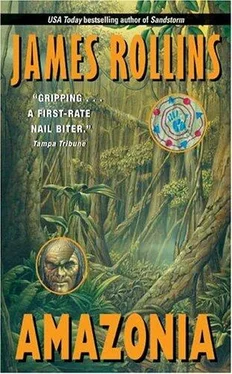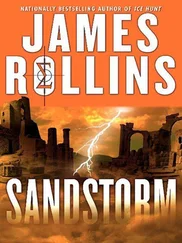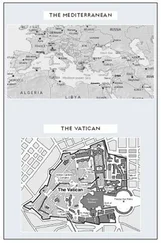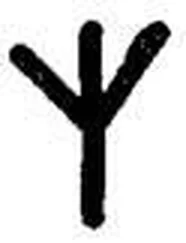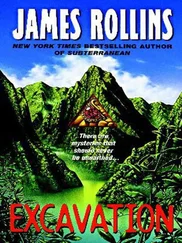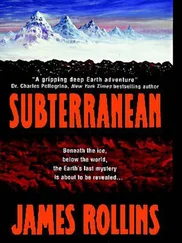James Rollins - Amazonia
Здесь есть возможность читать онлайн «James Rollins - Amazonia» весь текст электронной книги совершенно бесплатно (целиком полную версию без сокращений). В некоторых случаях можно слушать аудио, скачать через торрент в формате fb2 и присутствует краткое содержание. Жанр: Старинная литература, на английском языке. Описание произведения, (предисловие) а так же отзывы посетителей доступны на портале библиотеки ЛибКат.
- Название:Amazonia
- Автор:
- Жанр:
- Год:неизвестен
- ISBN:нет данных
- Рейтинг книги:5 / 5. Голосов: 1
-
Избранное:Добавить в избранное
- Отзывы:
-
Ваша оценка:
- 100
- 1
- 2
- 3
- 4
- 5
Amazonia: краткое содержание, описание и аннотация
Предлагаем к чтению аннотацию, описание, краткое содержание или предисловие (зависит от того, что написал сам автор книги «Amazonia»). Если вы не нашли необходимую информацию о книге — напишите в комментариях, мы постараемся отыскать её.
Amazonia — читать онлайн бесплатно полную книгу (весь текст) целиком
Ниже представлен текст книги, разбитый по страницам. Система сохранения места последней прочитанной страницы, позволяет с удобством читать онлайн бесплатно книгу «Amazonia», без необходимости каждый раз заново искать на чём Вы остановились. Поставьте закладку, и сможете в любой момент перейти на страницу, на которой закончили чтение.
Интервал:
Закладка:
"Exactly. Within a few weeks here, his amputated stump began to split, bleed, and sprout a raw tumorous growth. One of the survivors was a medical doctor. He and my father examined the change. The growth was a mass of undifferentiated stem cells. They were sure it was some malignant growth. There was even talk of trying to surgically remove it, but they had no tools. Over the next weeks, slow changes became apparent. The mass slowly elongated, growing skin on the outside:"
Kelly's eyes widened. "The arm was regenerating."
Nate nodded and turned. He scrolled down the computer journal to the day almost three years ago. He read aloud his father's words. " `Today it became clear to Dr. Chandler and me that the tumor plaguing Clark is in fact a regeneration unlike any seen before. Talk of escape has been put on hold until we see how this ends. It's a miracle that is worth the risk. The Ban-ali continue to remain accommodating captors, allowing us free run of the valley, but banning us from leaving. And with the giant cats prowling the lower chasm, escape seems impossible for the moment anyway.
Nate straightened up and tapped open a new file. Crude sketches of an arm and upper torso appeared on the screen. "My father went on to document the transformation. How the undifferentiated stem cells slowly changed into bone, muscle, nerves, blood vessels, hair, and skin. It took eight months for the limb to fully grow back."
"What caused it?" Kelly asked.
"According to my father's notes, the sap of the Yagga tree:"
Kelly gasped. "The Yagga . . ."
Kouwe's eyes widened. "No wonder the Ban-ali worship the tree:"
"What's a Yagga?" Zane asked from a corner, showing the first sign of interest in their discussion.
Kouwe explained what he and Kelly had witnessed up in the healing ward of the giant prehistoric tree. "Frank's wounds almost immediately sealed:"
"That's not all," Kelly said. She shifted closer to get a better look at the computer screen. "All afternoon, I've been monitoring his red blood cell levels with a hematocrit tube. The levels are climbing dramatically. It's as if something is massively stimulating his bone marrow to produce new red blood cells for all he lost . . . at a miraculous rate. I've never seen such a reaction:"
Nate clicked open another file. "It's something in the sap. My father's group was able to distill the stuff and run it through a paper chromatograph. Similar to the way the sap of copal trees is rich in hydrocarbons, the Yagga's sap is rich in proteins:"
Kelly stared at the results. "Proteins?"
Manny scooted next to her, looking over her shoulder. "Wasn't the disease vector a type of a protein?"
Kelly nodded. "A prion. One with strong mutagenic properties:" She glanced over her shoulder to Manny. "You were mentioning something about the piranhas and the locusts. A theory."
Manny nodded. "They're tied to this Yagga tree, too. The locusts live in the bark of the tree. Like some type of wasp gall. And the piranhas-their hatchery is in a pond tucked among the roots. There was even sap dripping into it. I think it's the sap that mutates them during early development:'
"My father suggested a similar conclusion in his notes," Nate said quietly. In fact, there were numerous files specifically on this matter. Nate had not been able to read through them all.
"And the giant cats and caimans?" Anna asked.
"Established mutations, I'd wager," Manny said. "The two species must've been altered generations ago into these oversized beasts. I imagine by now they're capable of breeding on their own, stable enough genetically to need no further support from the sap:"
"Then why don't they leave the area?" Anna asked.
"Perhaps some biological imperative, a genetic territorial thing:"
"It sounds like you're suggesting this tree manufactured these creatures purposefully? Consciously?" Zane scoffed.
Manny shrugged. "Who can say? Maybe it wasn't so much will or thought as just evolutionary pressure:"
"Impossible:" Zane shook his head.
"Not so. We've seen versions of this phenomenon already." Manny turned to Nate. "Like the ant tree:"
Nate frowned, picturing the attack on Sergeant Kostos by stinging ants. He remembered how an ant tree's stems and branches were hollow, serving both to house the colony and feed it with a sugary sap. In turn, the ants savagely protected their home against the intrusion of plants and animals. He began to understand what Manny was driving at. There was a distinct similarity.
Manny went on, "What we have here is a symbiosis between plant life and animal, both evolved into a complex shared interrelationship. One serving the other:"
Camera spoke up from her post by a window. The sun was slowly setting behind her shoulder. "Who cares how the beasts came to be? Do we know how to avoid them if we have to fight our way out of the valley?"
Nate answered her question. "The creatures can be controlled:'
"How?"
He waved to the laptop. "It took my father years to learn the Ban-ali secrets. It seems that the tribe has developed powders that can both attract and repel the creatures. We ourselves saw this demonstrated with the locusts, but they can do it with the piranhas, too. Through chemicals in the water, they can lure and trigger an aggressive response in the otherwise docile creatures. My father believed it's some type of hormonal compound that stimulates the piranhas' territoriality and makes them attack wildly."
Manny nodded. "Then it's lucky we wiped out a majority of the adult horde so quickly. I imagine it takes time for their hatchery to grow a new supply. Just one of the disadvantages of a biological defense system:"
"Perhaps that's why the Ban-ali keep more than one type of creature;" Camera noted astutely. "Backup troops:"
Manny frowned. "Of course. I should've thought of that:"
Camera faced Nate. "Then there are those cats and giant caimans to consider."
Nate nodded. "Gatekeepers, like we thought, set up to defend the perimeter. They patrol the entry points to the heart of the territory. But even the jaguars can be made docile by painting a black powder over one's body, allowing the Ban-ali to pass freely back and forth. I imagine the compound must act like caiman dung, a scent repellent to the giant cats:"
Manny whistled. "So our guide's body paint wasn't all camouflage:"
"Where do we get some of this repellent stuff?" Kostos asked. "Where does it come from?"
Kouwe spoke up. "The Yagga tree." He had not moved, only grown more pale with the telling of the tale.
Nate was surprised by the professor's quick answer. "They're derived from the Yagga's bark and leaf oils. But how did you guess?"
"Everything ties back to that prehistoric tree. I think Manny was quite correct that the specimen behaves like an ant tree. But he's wrong about who the ants are here:'
"What do you mean?" Manny asked.
"The mutated beasts are just biological tools supplied by the tree for its true workers:" Kouwe stared around him. "The Ban-ali:"
A stunned silence spread over the group.
Kouwe continued, "The tribesmen here are the soldier ants in this relationship. The Ban-ali name the tree Yagga, their word for mother. One who gives birth . . . a caretaker. Countless generations ago, most likely during the first migration of people into South America, the tribe must have stumbled upon the tree's remarkable healing ability and became enthralled by it. Becoming ban-yin-slaves. Each serving the other in a complex web of defense and offense:'
Nate felt sickened by this comparison. Humans used like ants.
"This grove is prehistoric," the professor finished. "It might trace its heritage back to Pangaea, when South America and Africa were joined. Its species may have been around when man first walked upright. Throughout the ages, there are hundreds of myths of such trees, from all corners of the world. The maternal guardian. Perhaps this encounter here was not the first:"
Читать дальшеИнтервал:
Закладка:
Похожие книги на «Amazonia»
Представляем Вашему вниманию похожие книги на «Amazonia» списком для выбора. Мы отобрали схожую по названию и смыслу литературу в надежде предоставить читателям больше вариантов отыскать новые, интересные, ещё непрочитанные произведения.
Обсуждение, отзывы о книге «Amazonia» и просто собственные мнения читателей. Оставьте ваши комментарии, напишите, что Вы думаете о произведении, его смысле или главных героях. Укажите что конкретно понравилось, а что нет, и почему Вы так считаете.
